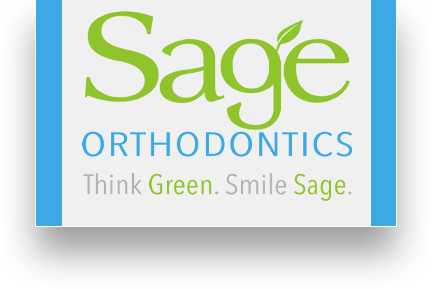
Everyone has a different smile, so it makes sense that misalignment would cause a variety of issues. Oftentimes, the shape of the mouth is influenced by a combination of factors, including the alignment of the jaws, how the teeth erupt, or childhood behaviors.
You can learn about the types of bite problems that affect patients of all ages by visiting an orthodontist. Minor gaps and tooth alignment are not usually a major concern. Rather, orthodontists are devoted to treating patients with the following types of bite problems with comprehensive orthodontic treatment:
Underbite
An underbite is a common issue, especially in children. It occurs when a person’s lower jaw is pushed forward, leaving the lower rows of teeth protruding. This type of bite can cause serious problems, such as rapid tooth wear, damage to the enamel, and stress on the jaw joints.
If the overbite is severe, the affected individual may also have a “bulldog” appearance or teeth that protrude over their upper lip. Braces are often recommended to treat this condition.
Overbite
Having an overbite is the opposite of having an underbite. An upper row of teeth covers the lower row of teeth when the upper jaw protrudes over the lower one. The most common cause of overbites is having a small or narrow upper palate.
With an overbite, an individual may experience problems like weak gums, increased damage to the enamel, rapid tooth wear, and difficulty eating. Braces in conjunction with palate expanders are recommended forms of treatment.
Misalignment
An alignment problem occurs when the jaws or teeth do not line up properly. Generally speaking, misalignment refers to a situation where the teeth or jaws are causing extreme wear on the enamel and joints of the jaws.
Crossbite
Crossbite comes in two forms: anterior and posterior. A posterior crossbite occurs when the upper teeth fit behind the lower teeth, whereas an anterior crossbite occurs when the lower teeth fit behind the upper teeth.
A crossbite can affect a single tooth or several teeth. Both baby teeth and permanent teeth may be affected.
One of the most serious bite problems an individual can have is crossbites. Misaligned teeth can cause a wide range of issues, including lopsided jaw growth, lopsided facial appearance, and excessive enamel wear. Additionally, the affected teeth could dig into the gum tissue, weakening it and making it more susceptible to infection.
Crowding
The teeth become crowded when there is not enough space for them to grow properly. Because of this, the teeth may begin to overlap, rotate, or even become trapped behind the central row of teeth. There are several reasons for crowding, but the two most common are having large teeth or having a small mouth.
If crowding is severe, an orthodontist may recommend tooth extraction, braces, a palate expander, or even surgery. Young patients can prevent future crowding by having their teeth removed.
Spacing issues
A gap in a smile occurs when two teeth are not properly aligned, resulting in a space between them. A small gap is normal, especially between the two front teeth. However, larger gaps should be taken seriously. This can result in weakened gum tissue, increased gum disease risk, and unnatural shifting of other teeth.
Braces and dental implants are both common methods of fixing gaps in the mouth.
Deep Bite
A deep bite is when the front teeth almost completely cover the bottom ones. A deep bite could be considered an overbite, but not all overbites are deep bites. Since the teeth surround one another, the cusps constantly cut and scrape the gums on the other side. This is a serious misalignment that leads to issues, especially for the gums. This increases the risk of infection but can also loosen the hold the tissue has on the teeth.
In serious cases, individuals with deep bites can lose their permanent teeth.
Open Bite
There are two types of open bites: anterior and posterior. A posterior open bite occurs when the front teeth do not close while the back teeth do. When you have an anterior open bite, your front teeth close together, but your back teeth do not.
Sometimes, an open bite is caused by small or irregularly shaped teeth, but it can also be caused by childhood behaviors such as breathing through the mouth, thumb sucking, or pushing on the teeth constantly with the tongue. Untreated open bites can result in swallowing difficulties and speech impediments.
Protrusion
When the front teeth stick out at an odd angle, it is called a protrusion. Generally, protrusions are called “buck teeth,” and one may occur if the upper jaw is too forward, the lower jaw is too backward, or the teeth emerge at an odd angle. Additionally, some childhood behaviors, such as sucking one’s thumb as an older child, can result in a protrusion.
Protrusions have the longest list of effects and can be extremely uncomfortable. When left untreated, protrusions can lead to permanent tooth loss, an increased risk of breaking the front teeth, trouble closing the mouth, or excessive oral dryness that can lead to tooth decay.
Bite problems can affect both children and adults. If you or someone you know is experiencing one of these issues, you should consult our Portage MI orthodontist. The simplest treatment available is braces, which correct both tooth alignment and the alignment of the jaws.
Contact Sage Orthodontics of Portage today to schedule a consultation appointment.

